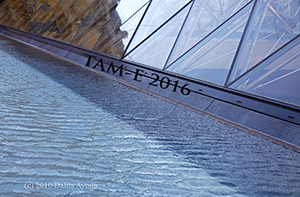It may be considered common knowledge that aspect is a highly contextual category: It is not only determined by inherent lexical semantics, but also depends on sentence-internal elements such as adverbs, quantifiers or argument structure (cf. Il s'est mis à chanter vs. Il s'est mis doucement à chanter; Elle a donné naissance vs. Elle donnait des conseils.). Corpus-based approaches may thus turn out fruitful in describing aspectual behavior of verbs, as they make possible an analysis of lexico-grammatical patterns.
While some corpus-based research on tense-aspect distribution in French has already been conducted (e.g. Labeau 2006, Hurinville 2010), there is a certain lack of large-scale studies focusing aspectual behavior, especially with spoken data. Based on the Corpus de référence du francais contemporain (CRFC), the first genre-diverse mega-corpus of French with currently about 320 million words (Siepmann et al. 2015), the present study endeavors to start closing this gap.
In a first step, we will analyze the distinction between passé composé (PC) and imparfait (IMP) from a quantitative perspective: in how far do the most frequent French verbs show a preference for one of the tenses? In a second step, a qualitative analysis will discern to what extent specific lexico-grammatical patterns correlate with tense-aspect choice.
The corpus evidence confirms the traditional assumption that stative verbs co-occur mainly with the IMP, whereas dynamic verbs tend to co-occur with the PC. A closer look however reveals that aspectual behavior is less a matter of internal temporal structure than of semantics: the results indicate that polysemy and the semantics of argument structure are a main factor determining tense choice. Traditional categorizations such as the Vendlerian schema must be therefore relativized. Pedagogical implications for the teaching of aspectual distinctions in L2-French will eventually be discussed.

 PDF version
PDF version
